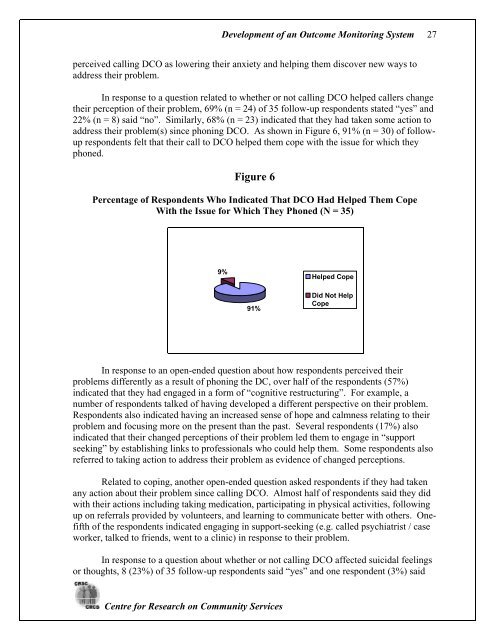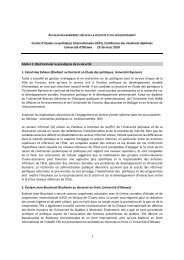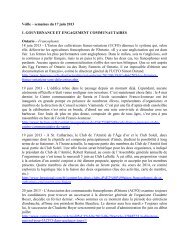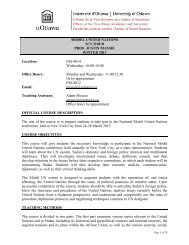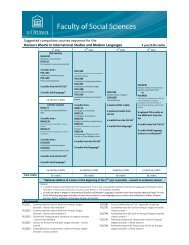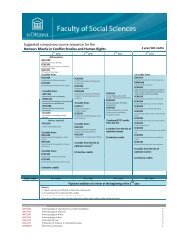Development of an outcome monitoring system for crisis telephone ...
Development of an outcome monitoring system for crisis telephone ...
Development of an outcome monitoring system for crisis telephone ...
You also want an ePaper? Increase the reach of your titles
YUMPU automatically turns print PDFs into web optimized ePapers that Google loves.
<strong>Development</strong> <strong>of</strong> <strong>an</strong> Outcome Monitoring System<br />
27<br />
perceived calling DCO as lowering their <strong>an</strong>xiety <strong>an</strong>d helping them discover new ways to<br />
address their problem.<br />
In response to a question related to whether or not calling DCO helped callers ch<strong>an</strong>ge<br />
their perception <strong>of</strong> their problem, 69% (n = 24) <strong>of</strong> 35 follow-up respondents stated “yes” <strong>an</strong>d<br />
22% (n = 8) said “no”. Similarly, 68% (n = 23) indicated that they had taken some action to<br />
address their problem(s) since phoning DCO. As shown in Figure 6, 91% (n = 30) <strong>of</strong> followup<br />
respondents felt that their call to DCO helped them cope with the issue <strong>for</strong> which they<br />
phoned.<br />
Figure 6<br />
Percentage <strong>of</strong> Respondents Who Indicated That DCO Had Helped Them Cope<br />
With the Issue <strong>for</strong> Which They Phoned (N = 35)<br />
9%<br />
Helped Cope<br />
91%<br />
Did Not Help<br />
Cope<br />
In response to <strong>an</strong> open-ended question about how respondents perceived their<br />
problems differently as a result <strong>of</strong> phoning the DC, over half <strong>of</strong> the respondents (57%)<br />
indicated that they had engaged in a <strong>for</strong>m <strong>of</strong> “cognitive restructuring”. For example, a<br />
number <strong>of</strong> respondents talked <strong>of</strong> having developed a different perspective on their problem.<br />
Respondents also indicated having <strong>an</strong> increased sense <strong>of</strong> hope <strong>an</strong>d calmness relating to their<br />
problem <strong>an</strong>d focusing more on the present th<strong>an</strong> the past. Several respondents (17%) also<br />
indicated that their ch<strong>an</strong>ged perceptions <strong>of</strong> their problem led them to engage in “support<br />
seeking” by establishing links to pr<strong>of</strong>essionals who could help them. Some respondents also<br />
referred to taking action to address their problem as evidence <strong>of</strong> ch<strong>an</strong>ged perceptions.<br />
Related to coping, <strong>an</strong>other open-ended question asked respondents if they had taken<br />
<strong>an</strong>y action about their problem since calling DCO. Almost half <strong>of</strong> respondents said they did<br />
with their actions including taking medication, participating in physical activities, following<br />
up on referrals provided by volunteers, <strong>an</strong>d learning to communicate better with others. Onefifth<br />
<strong>of</strong> the respondents indicated engaging in support-seeking (e.g. called psychiatrist / case<br />
worker, talked to friends, went to a clinic) in response to their problem.<br />
In response to a question about whether or not calling DCO affected suicidal feelings<br />
or thoughts, 8 (23%) <strong>of</strong> 35 follow-up respondents said “yes” <strong>an</strong>d one respondent (3%) said<br />
Centre <strong>for</strong> Research on Community Services


